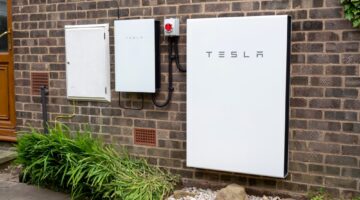
The recently announced changes to the way pensions can be used means that it is now possible to invest some of that pension money for improvements to the property – beginning at age 55. With that cash, you can pay for energy saving improvements and make a return on your investment really quickly. There will be plenty of companies out there trying to get you to invest in a wide range of home improvements, but what makes the best investment for a retiree?
What is the best investment for your property?
There are two ways you are going to see a return on your investment – either through savings from the improvement measure, or by government subsidies paid from the installation and use of the measure. You will of course also reap the benefits of the improvement to your property – a more comfortable, aesthetically pleasing home. After all, as you get older, you are going to be spending more and more time in your home, so you might as well make it as comfortable as possible.
Insulation as an investment
Insulation is a great investment for those over 55. As you get older, you tend to want the property a little warmer and your heating bills go up. The best way to keep the bills down is better insulation, and it will usually pay back very quickly. The costs vary wildly, but in the long run it is nearly always worth investing in insulation, especially with the government subsidies available for things like loft and wall insulation. It will improve the energy efficiency of the property as well as increase the value.
The current government subsidies for solid wall insulation are particularly attractive. You could insulate your property for a fraction of the market rate and the savings from this improvement are very good. A typical end terrace or semi detached house will produce savings of around £300 a year, whilst the cost of insulation, once the subsidies are taken into account, could be around £3,000. That is payback in 10 years, along with a shiny new coat of render and a 25 year life expectancy minimum. Not a bad deal, considering reapplying render is going to cost more than £3,000 and you don’t get any subsidy nor benefit from the added warmth.
Renewables a great investment option
Renewables are great because you can combine the security of a guaranteed cheap electricity supply with a regular government payment to produce your own energy. Installing a solar PV or solar thermal system will set you back several thousand pounds, but the return on investment is usually less than 8 years, and the lifespan of the system is 20 years plus, with minimal maintenance – Perfect for an older person that doesn’t want too much regular disruption. It is very much a ‘fit and forget’ technology, and those regular incentive payments are like a pension top-up!

What doesn’t make sense as an investment?
There are several things that won’t pay back in your lifetime, and probably don’t make sense financially. Things like double glazing, floor insulation, in some instances boiler upgrades, are all measures that might well be necessary for you and your home, but shouldn’t necessarily be considered investments, as they usually won’t pay back very quickly – sometimes even within the lifetime of the materials.
Double glazing may well increase the value of the property and boost aesthetics, but the energy savings are actually very small compared to the overall cost. As an investment double glazing will only pay back in a handful of circumstances, and it is really important to choose the right windows. Sash double glazing can be an expensive but attractive addition to a period property, but uPVC casement double glazing can really devalue a period home.
Upgrading your boiler can be a great investment, but only if your current boiler is very old, and your home is reasonably big. The reason being that older boilers are less efficient, and larger homes cost more to heat – that means that the savings on an old boiler in a 5 bed house are going to be several hundred pounds a year, whereas replacing a 15 year old boiler in a 1 bed flat is probably only going to save £50 a year. When the cost of a new boiler is in the region of £1,500 to £3,000 depending on the works required, you can see that these factors are going to be the difference between a great investment that pays back in a few years, to a waste of money that won’t pay back within the lifetime of the boiler.
Think we missed something? Do you have a different opinion?
Comment below to get your voice heard…












No Comments yet! Be the first one.